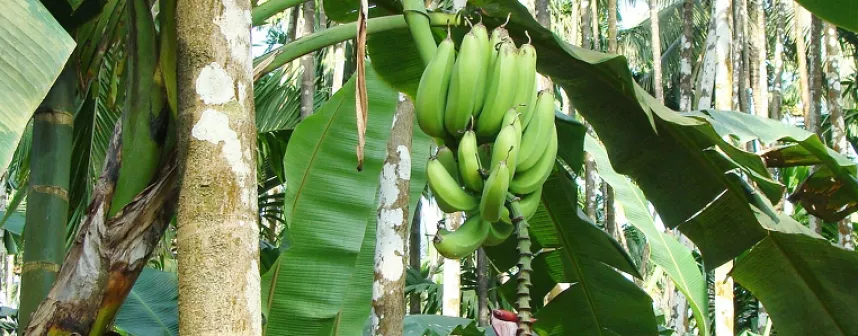Banana peels instead of band-aids? Research about the healing powers of the banana at Jacobs University
June 4, 2018
Bananas are not only tasty to eat, they can also heal. In many developing countries, open wounds are covered with banana leaves or peels instead of a band-aid; even larger wounds can be treated successfully. A team of scientists at Jacobs University Bremen, led by Chemistry Professor Dr. Nikolai Kuhnert, has now taken a closer look at the healing power of bananas and identified 70 different substances that could be responsible for wound healing.
The research project was initiated by a visiting professor at Jacobs University, Prof. Dr. Mubo Sonnibare, a pharmacist from Nigeria, who was financed by the Alexander von Humboldt Foundation. In western Africa, as in many parts of Asia, bananas are traditional remedies. However, this is not the Cavendish banana commonly found in German supermarkets, to which no healing power is attributed, but the Musa acuminata, another plant species.
Like coffee or tea, the banana is characterized by many polyphenolic, i.e. aromatic compounds. Some have an antibacterial and disinfectant effect, which helps protect a wound from bacterial infections. Others have an astringent, or tightening, effect that can be felt on the tongue, for example. When these compounds come into contact with the skin, they alter its proteins and form a kind of protective layer over the wound.
In order to determine what healing power the individual compounds have, further, time-consuming tests would have to be carried out, as a whole series of factors play a role in wound healing. "This research has given us a deeper understanding of a traditional drug," says Kuhnert. The results of the study have now been published in the Journal of Food Measurement and Characterization.
Questions will be answered by:
Prof. Dr. Nikolai Kuhnert | Professor of Chemistry
n.kuhnert [at] jacobs-university.de| Tel.: +49 421 200-3120
